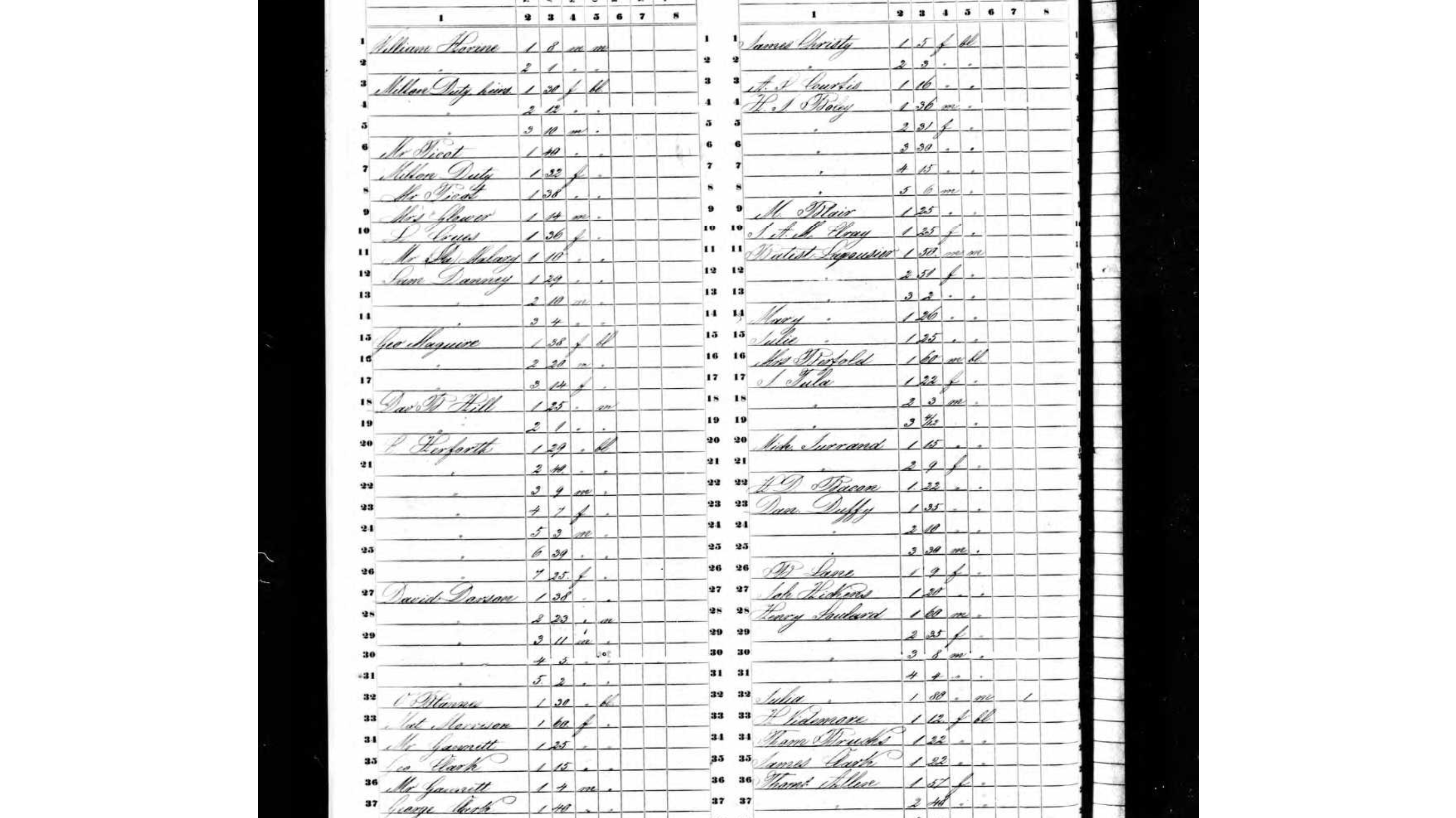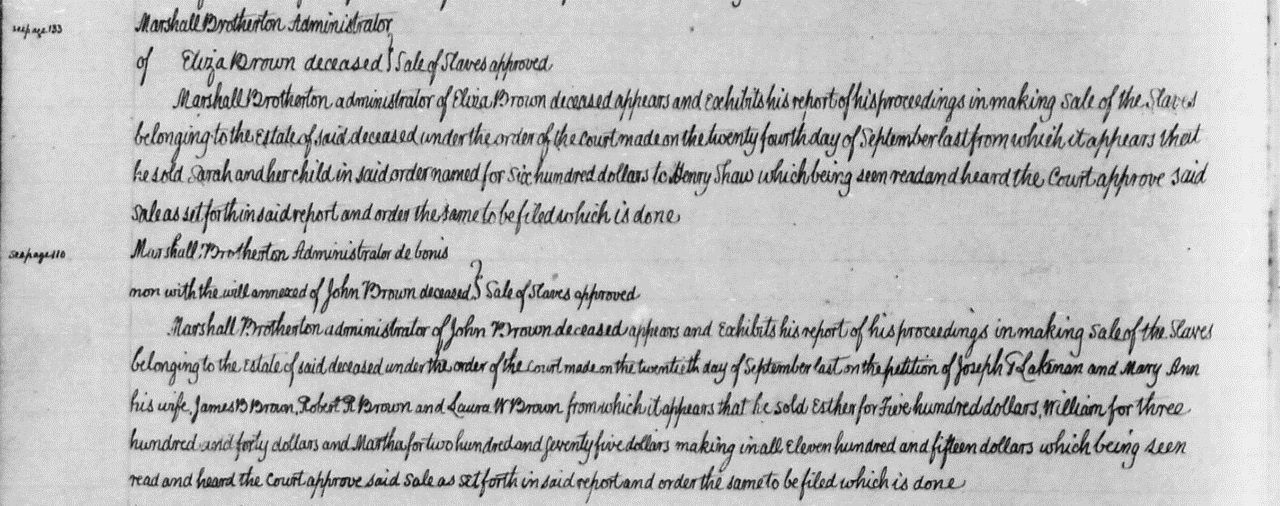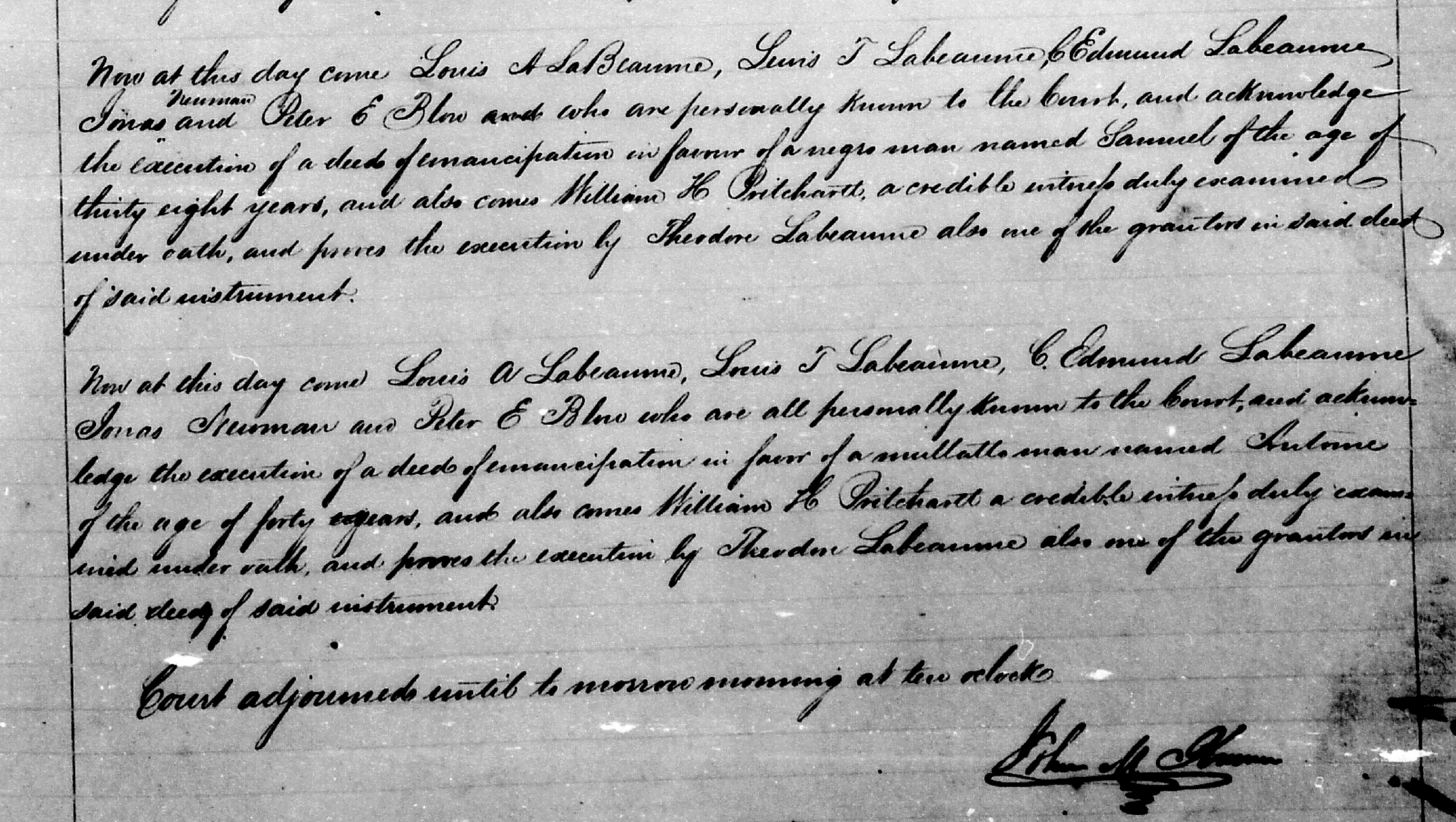The Records on SLIDE
Click “learn more” under reach record set for more information on the history of how and why these records were created, where you can find them, and what they can and cannot tell you about enslavement and enslaved people in St. Louis.
While these sources can provide a great deal of information, it is crucial to note their limitations. The data recorded may be mis-transcribed, incomplete, or incorrect. Importantly, the information recorded within this database does not have the ability to relate much about enslaved and free Black St. Louisans, nor is it a reflection of what those individuals believed to be important or meaningful about themselves. Indeed, by replicating records about human bondage created by enslavers, we in many ways pass forward the aspects of the lives of these enslaved persons they would least likely foreground in their own narratives. We attempt to balance the duplication of this violence within the archives by putting emphasis on what we can learn of enslaved people and where the record about them may be misleading.

1830 and 1840 U.S. Censuses
The 1830 and 1840 censuses document enslaved people, counted only as numbers tallied in groupings categorized by sex and estimated age, within the households of the people who enslaved them.

1845 St. Louis City Census
The 1845 St. Louis City Census documents enslaved people, counted only as numbers tallied in groupings categorized by sex and estimated age, within the households of the people who enslaved them.

1850 and 1860 U.S. Census Slave Schedules
The 1850 and 1860 censuses count enslaved people separately from the households which enslaved them in Census Schedule 2, commonly known as the “Slave Schedule,” organized by the region where they were enslaved and the name of their enslaver. Most are recorded without a name and only their assumed age and sex.

St. Louis Probate Court Ordered Slave Sales Database
The Court Ordered Slave Sales database curates records from St. Louis Probate Court books that detail the court’s decisions about enslaved people’s forced transfer between enslavers, usually when an enslaver died and the people they enslaved were bequeathed or sold at auction.

Court Registered Emancipations Database
This database curates records from St. Louis Circuit Court books documenting emancipations of enslaved people. Occasionally, information from private emancipation records have been included in this database.

Freedom Licenses Database
Free Black residents of St. Louis were required by law to apply for, receive, and carry licenses proving that they were legally free and lawful residents of the state. This database documents the applications registered in St. Louis Circuit Court Books.
The data available on this site should be seen as an entry point for further research, allowing for a more complete picture of the individuals listed here to emerge. These lists are compiled here in the hopes that a more complete accounting of this often-hidden aspect of our city’s past might be made and in the hopes that future scholars might find here the launching points for a more thorough accounting of the lives these data invariably distort and obscure.
If you are interested in doing this work of further research but don’t know how to get started, these sources might be helpful.
Complete data download and finding guide
- Contains each of the datasets on SLIDE as .csv files in a Zip file, provided for your own research purposes. Last updated May 2022.